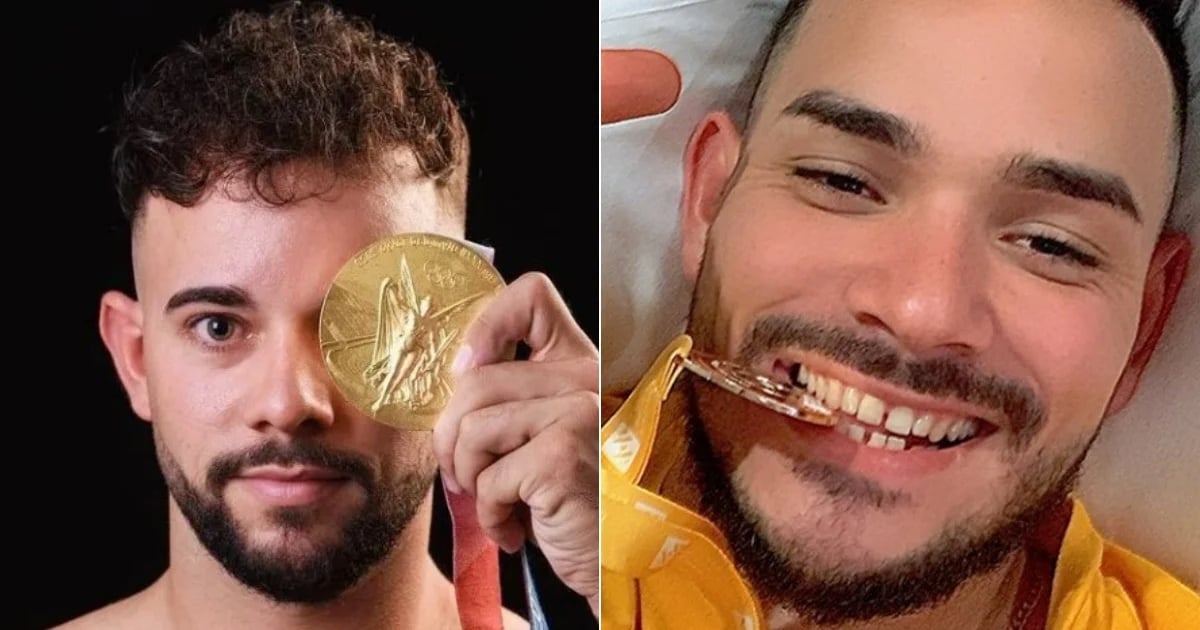The Cuban regime reacted furiously to the inclusion of two athletes from the island in the Olympic Refugee Team (ORT). The international Olympic authorities' decision was labeled as "manipulation" by the official press.
Regime's Outcry Against Olympic Decision
An article published by the official organ of the Communist Party of Cuba (PCC), signed by sports journalist Oscar Sánchez Serra, denounced the inclusion of canoeist Fernando Dayán Jorge Enríquez and weightlifter Ramiro Mora Romero in the ORT. According to Sánchez Serra, the International Olympic Committee (IOC) has fallen victim to "manipulation" by including these athletes for two reasons: first, athletes, like all humans, migrate. Second, the regime's sports authorities do not punish them for doing so.
However, it's the official press that once again manipulates the narrative. It's well known that Cuban athletes who do not use institutional channels to secure contracts abroad and decide to do so independently are banned by the authorities from competing under the national flag.
In March 2022, Olympic champion canoeist Jorge Enríquez left the delegation he was traveling with to Mexico for a preparation camp. The National Commission of that discipline labeled the decision of the athlete from Cienfuegos as a "serious indiscipline" and added that it "undermines years of intense work and aspects of the sport's development strategy towards the Olympic cycles of Paris 2024 and Los Angeles 2028."
Athletes' Journeys and Achievements Abroad
In August 2021, Jorge Enríquez became the Olympic champion in the C2 1000m event alongside veteran Serguey Torres. This was Cuba's first gold medal in Olympic canoeing, which had previously secured three silver medals. The National Canoeing Commission stated that Jorge Enríquez "turned his back on the commitment to new results for his sport and his people" after abandoning the team in Mexico.
The 25-year-old canoeist, who emigrated to the United States via the southern border, shared in an interview his perception of Cuban reality after returning from the Tokyo Olympic Games held in August 2021, a month after the historic July 11 protests known as 11J. "After spending three months on vacation after the Olympics, that was when I really immersed myself in society and truly lived what all Cubans experience," said Jorge Enríquez. "There were many moments when I was disappointed and disagreed with the things happening," he emphasized.
During his journey, the canoeist caught international media attention by assisting a young Cuban girl while crossing the Rio Grande. "What followed was a challenging period during which he had to work and train simultaneously under difficult conditions. Fernando now resides in Florida and trains daily in a canal near his home with the support of his coach, Alain," the IOC notes in the athlete's biographical sketch.
Successes and Criticism of the Refugee Team
Since then, the canoeist has persevered in his dream of returning to international competition. His talent was demonstrated in the United States when he won four gold medals at the National Canoe Sprint Championships held in Sarasota, Florida.
As for Mora Romero, the Cuban weightlifter who holds multiple records in the 89 and 96 kg weight categories, he arrived in London from Havana as a circus trapeze artist in 2019. In 2023, he was proclaimed the British national champion in weightlifting, setting a record.
According to the official journalist's article in Granma, "Cuba has already had Olympic champions under a flag that is not theirs, like Pedro Pablo Pichardo in Tokyo 2020 in the triple jump; in Paris 2024, the now Portuguese athlete will have his compatriot Andy Díaz, now Italian, as a rival."
"We saw Osmani Juantorena in the Italian volleyball team in 2016, and in July it will be the same with the 'Pole' Wilfredo León. At the Pan American Games in Santiago de Chile, there were several duels between Cubans representing their homeland and those representing another," noted Sánchez Serra.
However, the inclusion of Dayán Jorge and Mora Romero in the ORT expresses the "complicity" of the IOC and the UN refugee agency (UNHCR) with "the aggressive and criminal policy of the United States against Cuba, which has used talent theft and organized irregular migration—with all its human cost, because they don't care about life—to discredit it, attacking one of its great achievements: its sports movement."
"Cuba does not use sports as a policy," affirmed Sánchez Serra. "It's the empire defeated for 65 years that is bothered by the fact that, after trying to starve it, leaving it without fuel, speculating with its finances against an entire people, a black man like Mijaín López or someone like Idalys Ortiz rises to the top of the podium, reserved for the rich world, for those who exploit," concluded the propagandist, accusing the United States of "racism in sports," the country with the most black Olympic medalists in history.
FAQ on Cuban Athletes in the Olympic Refugee Team
To provide further clarity on the situation involving Cuban athletes in the Olympic Refugee Team, here are some frequently asked questions and their answers.
Why were Fernando Dayán Jorge Enríquez and Ramiro Mora Romero included in the Olympic Refugee Team?
They were included as they are considered refugees who have fled Cuba and now reside in other countries, continuing their athletic careers.
How has the Cuban regime reacted to their inclusion in the ORT?
The Cuban regime has reacted angrily, labeling the decision as "manipulation" by the International Olympic Committee.
What are the achievements of Fernando Dayán Jorge Enríquez since he left Cuba?
Since emigrating to the United States, he has won four gold medals at the National Canoe Sprint Championships in Sarasota, Florida.
What accusations has the Cuban regime made against the United States regarding this issue?
The regime accuses the United States of using sports as a political tool and organizing irregular migration to discredit Cuba and its achievements.
